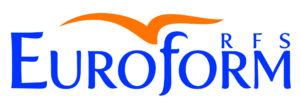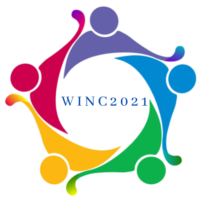The WINC2021 project, co-funded by the Erasmus+ program, has been based on the issue that the growing number of migrants in Europe and the necessity to implement paths of social inclusion is one of the European Union’s priorities. Nowadays, migrants who arrive in Europe are often forced into low-level work positions or jobs unrelated to their previous education or experience because they find themselves unable to demonstrate their acquired skills. At the same time, the system of Validation of Acquired Experiences (VAE) present in the different States of the European Union is characterised by a high fragmentation due to the unequal transposition of the European framework law on a national and sometimes even regional level. This is compounded by the peculiarities of the migrants’ countries of origin regarding training and occupational systems. These are often different from the European systems, making the validation process and the migrants’ access to the actual systems of recognition of qualifications, experiences and competences extremely challenging. In this context, the role of adult education institutions is of primary importance, as they are very often the main interlocutors of those migrants, who want to be socially and professionally integrated in the European system. This project aims at meeting the needs of certification operators (validators), or future validators, working in adult education institutions to learn new methods in order to be able to certify migrants’ experiences, qualifications and skills and, consequently, to allow the latter a better socio-occupational integration. In this regard, the creation of a new instrument based on the national experiences of Validation of Acquired Experience (VAE) and supported by
technological tools capable of overcoming geographical and spatial constraints appears to be an optimal solution capable of mitigate the current absence of uniformity in the certification of qualifications and skills in the European Union. More particularly, migrants who arrive in European countries often struggle to be integrated into the social and occupational system of their country of arrival because they are confronted with a lack of univocal and adequate tools to meet their expectations. Most of the time, they enter the labour market in sectors that are different from the ones in which they worked in their country of origin because they are unable to demonstrate that they have previously acquired certain specific skills. Therefore, the necessity to create new and effective tools useful for the socio-occupational inclusion of migrants starts with the analysis of the current validation experiences in the countries where the migratory phenomenon has become prominent in order to create a shared validation tool that can be used by the operators working in adult training institutions. The newly conceived VAE methodology will allow a first recognition of qualifications, experiences and skills with a consequent improvement of the working conditions of validators and of migrants, allowing them to aspire to better personal and professional conditions, minimizing the possibility of remaining on the margins of the social life of the country of arrival.
Bearing in mind that on European level the instrument of Validation of Acquired Experience has been identified as a means of social inclusion, but that at the current moment there is a fragmentation of national and regional applicative norms that do not suit the needs of migrants and validators, the present project has the general objective of improving the conditions of socio-occupational inclusion of migrants that are present on the European territory and of providing those who work in the adult education sector with more qualified and effective validation tools that meet the needs of the migrants.
More specifically, the objectives are: -To create a VAE methodology specially designed for migrants that differs from the ones already existing because of its peculiarities, which allow it to be applied remotely thus overcoming spatio-temporal barriers; -Create support tools that can facilitate the implementation of the VAE methodology and remove linguistic and geographical obstacles, facilitating communication between professionals working in the field of adult education and migrants; -To create a training course to “enable” new validators on the European territory to use the new VAE methodology. Other objectives are: -To favour social integration and access to the educational and professional world for migrants, for whom the procedures of recognition
and validation of previous experiences are often inadequate, insufficient or chaotic in their implementation.
Indeed, the project is designed to: -improve the current socio-economic situation in which most migrants arriving in the EU find themselves, characterised by social exclusion and difficulties in finding qualified working positions; -improve the knowledge and skills of the project’s (direct) target group, i.e. validation operators, as well as enabling them to benefit from a more competitive operative environment attracting high numbers of new users thanks to the application of the innovative methodologies developed in the project; -improve the condition of training providers (training agencies, vocational schools) who will be able to maximise the resources they already have and improve the efficacy of their employees, using innovative tools; -Improve the operating standards of stakeholders involved in the project (reception centres, migrant’s associations and companies).
The results expected to be achieved in the intermediate phase of the project match the project’s Outcomes. To be specific: -Availability of a unique VAE methodology useable by all migrants arriving in European countries (1); -Accessibility to a course and materials to train the operators who will use this validation system (2); -Availability of a technological tool (WIN-App) that can connect the validator and the migrant overcoming geographical and language barriers (3). The results expected at the end of the project are the following: -Improvement of the validation and recognition of acquired experiences process, through the creation of the Mobile App, which will provide migrants with an immediately usable and easily accessible service; -Facilitation of migrants’ access to both worlds of training and of work, with the objective of improving their living conditions; -Facilitation of information exchange and communication between validators and migrants; -Improvement of working conditions of professionals working in the field of adult education; -Improvement of migrants’ socio-occupational inclusion.
The project activities will be conducted by a partnership between entities operating in 5 EU countries (Italy, Spain, Greece, France, Germany) with previous experience in the field of adult education, validation of competences and use of IT.
For outcomes and project results stay tuned with us on http://www.workinclusion2021.eu



Recent Comments